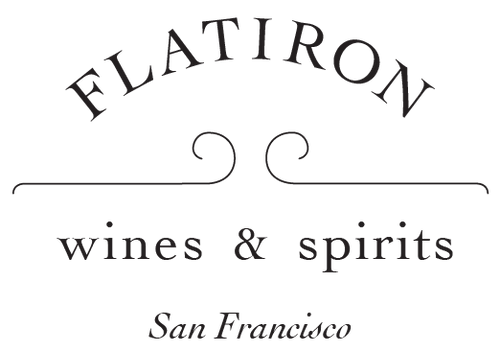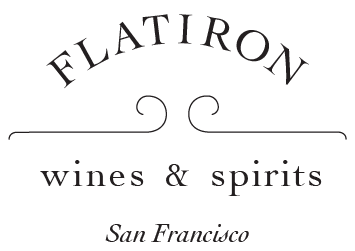
Champagne Lelarge-Pugeot: Tradition, Terroir, and the Rise of Meunier
Inspiration from a Chronicle Spotlight
When a producer we’ve long championed earns a feature, it’s a chance to celebrate—and reflect. Esther Mobley of the San Francisco Chronicle recently profiled Champagne Lelarge-Pugeot, spotlighting their biodynamic farming, Meunier-focused wines, and rising stature in the grower Champagne movement. Read the full article by Esther Mobley: The Bay Area can’t get enough of this Champagne, June 10, 2025. Inspired by that thoughtful piece, we wanted to offer a deeper look, combining what was shared in the article with insights from our years of working directly with this extraordinary producer. The result is a comprehensive profile of a producer whose story, practices, and wines we believe every Champagne lover should know.
A Family Legacy Rooted in Vrigny
Tucked into the Premier Cru village of Vrigny on the Montagne de Reims' western slope, Champagne Lelarge-Pugeot embodies the quiet resilience and depth of tradition that defines so many of Champagne's great grower-producers. The Lelarge family has tended vines here since 1799, with the first bottles bearing their name appearing in 1930. Today, the estate is in the capable hands of Dominique Lelarge and Dominique Pugeot, joined by their children Clémence and Valentin, who bring new energy to a deeply rooted legacy.
Their 8.7 hectares of vineyard land, spread across 42 tiny parcels, are a reflection of the family’s long history and intimate knowledge of their terroir. These vineyards are dominated by Pinot Meunier, the grape that has traditionally played a supporting role in Champagne blends. But here in Vrigny—where Meunier thrives in heavier, clay-rich soils—it is celebrated.
Biodynamics and a Regenerative Vision
In 2014, Lelarge-Pugeot made a bold decision to transition their vineyards to organic farming, receiving certification the same year. Just three years later, they achieved biodynamic certification as well, becoming one of the region's most vocal proponents of regenerative viticulture. These practices go far beyond abstaining from chemicals: cover crops, composts, teas, and even horse-drawn plowing help maintain vineyard health and biodiversity.
The goal, as the Lelarges have articulated time and again, is not to be fashionable, but to produce better wine. By encouraging vine resilience and capturing the vitality of their soils, they are working with nature, not against it—an ethos that shapes every step of their winemaking.
Winemaking with Restraint and Clarity
In the cellar, the family adheres to the same principles. Their Champagnes are made with native yeast fermentations, minimal sulfur, and no added enzymes. Fermentations take place in a mix of stainless steel tanks, neutral barrels, and large oak foudres. Malolactic fermentation is often encouraged, but not mandated, allowing each parcel and vintage to find its own expression.
The goal is transparency. Lelarge-Pugeot wants you to taste Vrigny: its soils, its sun, its wind. Their wines are neither austere nor opulent. They’re elegant, structured, and precise, with enough texture to interest the wine geek and enough charm to seduce the casual drinker.
A Portfolio That Centers Meunier
The estate’s "Tradition" cuvée is a fitting introduction. Built on a base of Pinot Meunier, with smaller amounts of Pinot Noir and Chardonnay, it balances fruit, acidity, and a light touch of texture. It’s the house’s largest production wine, and yet it never feels generic. This is Meunier as a serious soloist—a far cry from the filler grape reputation it once had.
Next in line is "Nature et Non Dosé," a zero-dosage expression that pushes even further into terroir transparency. Without dosage to mask rough edges, this cuvée is all about precision. Then there’s "Les Meuniers de Clémence," a single-varietal, single-vintage Meunier that pays tribute to Clémence’s growing role in the domaine and showcases just how layered and elegant this often-dismissed grape can be.
For the more adventurous, Lelarge-Pugeot also produces a "Luna" series of experimental wines. These bottlings are small-batch and often eschew Champagne's traditional framework. Some are bottled with minimal intervention, others with unusual blends or aging regimens. They reflect a restless curiosity and commitment to continuous learning.
Why Meunier, and Why Now?
Historically considered the third wheel in Champagne, Pinot Meunier has rarely had center stage. Its reputation as early-drinking and less complex left it in the shadow of Pinot Noir and Chardonnay. But in recent years, that perception has shifted—thanks in part to grower-producers like Lelarge-Pugeot, such as Jérôme Prévost, Chartogne-Taillet, Georges Laval, and Laherte Frères.
Meunier's early ripening and adaptability make it well-suited to a changing climate. It performs beautifully in clay soils and can produce wines with generous fruit, supple texture, and surprising longevity. As Champagne embraces greater diversity of expression, Meunier is finally being allowed to shine.
Recognition from the Wine World
This rising influence was recently captured in a feature by The San Francisco Chronicle, which profiled Lelarge-Pugeot as a leading voice in Champagne's biodynamic and Meunier-focused movement. Flatiron Wines was honored to be included in the piece, offering perspective on why producers like Lelarge-Pugeot matter so much to the future of Champagne. When authorities like Esther Mobley seek our input, it's a reflection of the time we've spent getting to know producers like this one—tasting their wines across vintages and learning directly from their evolving practices.
Explore the Collection
Lelarge-Pugeot’s Champagnes are available in extremely limited quantities, and each release tells a new chapter in their ongoing story. Whether you're a longtime Champagne lover or just starting your journey, we encourage you to explore this remarkable estate. Their wines are a masterclass in thoughtful farming, disciplined winemaking, and the potential of Meunier.
Browse our full selection of Lelarge-Pugeot Champagnes here.
Final Thoughts: Tradition with a Future
In a region where scale and brand often dominate the narrative, Lelarge-Pugeot stands out for their clarity of purpose. They are not just farming better; they are redefining what Champagne can be. From deep historical roots to a progressive embrace of sustainability and transparency, they embody the best of the grower movement.
As climate, taste, and tradition continue to evolve, we expect Lelarge-Pugeot to remain at the forefront. Their wines aren’t just a reflection of Vrigny—they’re a reflection of Champagne’s next chapter.

